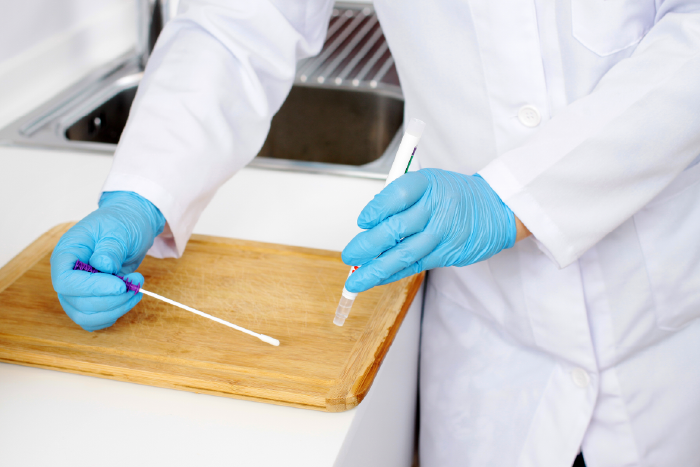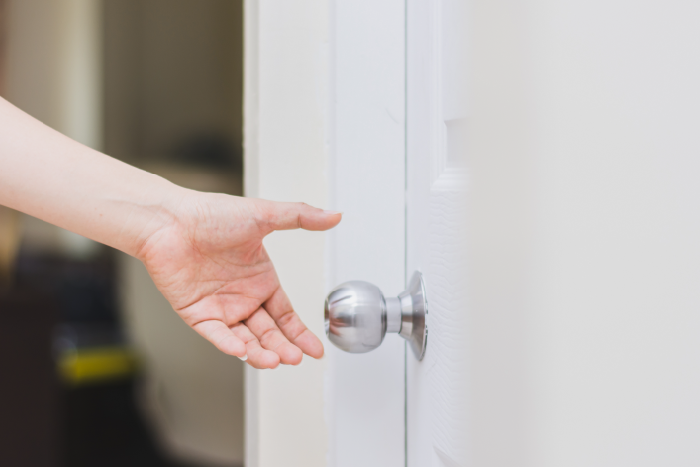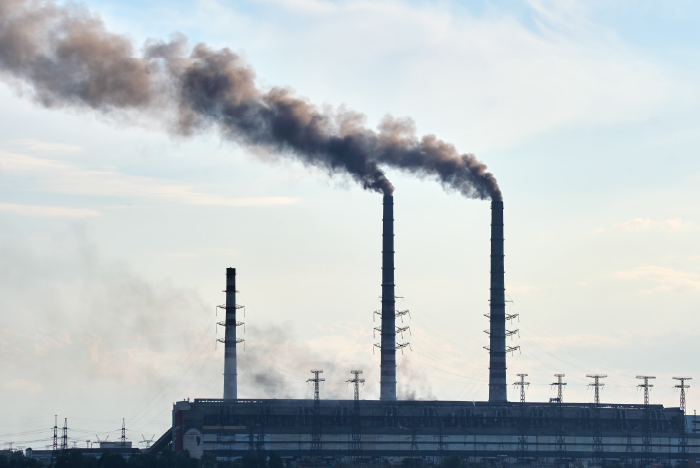
Is Your Facility Really Clean? The Hidden Importance of Surface Swab Testing
Surface swab testing is crucial for ensuring clean and safe environments by detecting harmful bacteria, viruses, mold, and other pathogens on surfaces. Whether in healthcare, food production, or public spaces, this testing helps businesses maintain hygiene standards, comply with regulations, and protect public health. At Reliable Testing Laboratory, we provide accurate surface testing services in Dubai to help you identify contaminants and keep your spaces safe and hygienic.
What is Surface Swab Testing
Surface swab testing is essential for industries to maintain a more hygienic environment. Whether it’s in food production, healthcare, pharmaceuticals, or cleanrooms, surface testing ensures that all areas are free from harmful contaminants and protects public health.
Environmental swab testing can identify bacteria, mold, and other pathogens that could lead to health risks, regulatory violations, or damage to products. By regularly testing surfaces, businesses can maintain clean and safe environments and also, compliance with hygiene regulations and protecting both employees and customers.
When You Need Surface Swab Testing
Visible Mold: If surfaces are dirty, moldy, or have spills, testing helps detect harmful bacteria or contaminants.
Persistent Odors: Foul smells may indicate bacterial or mold growth, requiring surface testing for confirmation.
Constant Illness or Allergies: continuous health issues among employees or customers may suggest hidden pathogens or allergens on surfaces, making testing essential.
Why Surface Swab Testing Is Important?
Surface swab testing is important to make sure cleanliness and safety in various environments. Here’s why it matters:
- Prevents Contamination: It helps identify harmful bacteria, mold, or viruses that may not be visible but could pose significant health risks.
- Ensures Hygiene Compliance: Many industries are required to meet strict hygiene standards. Regular testing ensures your business stays compliant with local and international regulations.
- Protects Public Health: By detecting contaminants early, surface swab testing helps prevent outbreaks of illnesses and protects both employees and customers.
- Improves Product Quality: In industries like food production or pharmaceuticals, surface testing ensures that contaminants don’t compromise the quality of products.
Surface Testing Services at Reliable Testing Laboratory
At Reliable Testing Laboratory, we offer a range of surface testing services in Dubai to ensure that the environment is free from harmful contaminants. Our expert testing methods can detect bacteria, fungi, and pathogens to ensure a safe and hygienic space. Here are some of the key services we provide:
Total Bacterial Count: This test measures the total number of bacteria present on a surface.
Total Bacterial Count: This test measures that the total number of bacteria on a surface. Total Fungal Count: This test detects the presence of mold and fungi on surfaces, which can cause health issues and damage to products in environments like healthcare, food processing, and cleanrooms.
Legionella Test: Legionella It detects Legionella bacteria that grow in water systems. these bacteria cause Legionnaires’ disease. Surface testing for Legionella ensures that your water sources and surfaces remain free from this harmful pathogen.
Pathogen Swab Test: We also offer swab tests specifically for pathogens like Salmonella, E. coli, and other harmful microorganisms.
Surface Swab Test for Bacteria
A surface swab test can detect harmful bacteria present on various surfaces. This test is essential to maintain a clean environment and prevent the spread of diseases in different industries such as food processing, healthcare, and pharmaceuticals.
How It Works:
A sterile swab is used to collect samples from surfaces that are dirty. The swab is then sent to a laboratory for analysis. The lab expert can analyse the total bacterial count in that specific area. This process helps identify the presence of dangerous bacteria like Salmonella, E. coli, or Listeria, which can pose serious health risks.
Industries That Need Surface Testing
Pharmaceuticals:
Maintains cleanrooms and equipment clean, ensuring products are free from contaminants.
Cosmetics:
Maintains product integrity by testing surfaces for mold and bacteria.
Manufacturing:
Prevents contamination in the production of electronics, automotive, and other products.
Hospitality: Keeps public areas and kitchens to hygiene standards to prevent illness.
Cafes, Restaurants, and Hotels:
With high customer turnover and frequent handling of food, maintaining clean surfaces is vital to prevent contamination and ensure food safety.
Medical Facilities:
In hospitals and clinics, surface swab testing helps detect harmful pathogens, safeguarding both patients and medical staff from infections.
Travel Hubs (Airports, Train Stations):
High foot traffic areas like travel hubs require regular surface testing to minimize the spread of viruses and bacteria, ensuring a safer environment for travelers.
High Footfall Areas (Malls, Event Spaces):
Popular public spaces need consistent hygiene checks to prevent the transmission of germs, keeping the environment clean and safe for all visitors.
Pharmacies:
As essential service providers, pharmacies must maintain high cleanliness standards. Surface testing ensures no harmful pathogens are present, particularly around medication.
Prayer Rooms:
Prayer rooms in public spaces or religious institutions must be regularly swabbed for hygiene, offering a safe and clean environment for visitors.
Meeting Halls and Conference Rooms:
Business centers and meeting spaces need to ensure their surfaces are sanitized, especially after hosting multiple groups or events, to prevent cross-contamination.
Surface Swab Testing Procedure
Inspection Sampling:
A sterile swab is used to collect a sample from the surface, typically from high-touch areas or visible contamination areas.
The swab is applied in a zig-zag motion or specific format to ensure proper coverage of the area.
Lab Analysis:
The collected sample is sent to the laboratory for testing.
The laboratory tests the sample for bacteria, mold, fungi, or pathogens and identifies the presence of any pathogenic microorganisms.
Conclusion
Surface swab testing is an important tool for ensuring cleanliness and safety across various industries. Reliable Testing Laboratory offers accurate and effective surface swab testing to help businesses detect harmful bacteria, mold, viruses, and other impurities. Through the utilization of advanced laboratory analysis, we give detailed results to help you maintain high levels of hygiene, ensure regulatory compliance, and protect public health.
Don’t let contamination impact your business call Reliable Testing Laboratory today to book your surface swab test and be confident that your environment is as clean as possible!
FAQs
1. What is swab analysis?
Swab analysis is the process of testing the collected surface sample for the presence of contaminants like bacteria, mold, or viruses. The sample is analyzed in a laboratory to determine the type and amount of microorganisms present on the surface.
2. How do you take a surface swab sample?
We collect samples on the following basis.
- Prepare: Use a sterile swab and wear gloves to avoid contamination.
- Collect: Rub the swab over the surface in a zig-zag motion or in a specific pattern to ensure thorough sampling. Focus on areas where contamination is likely, such as high-touch surfaces.
- Store: Place the swab in a sterile container or transport tube and send it to the lab for analysis.
3. How often should I conduct surface testing?
The frequency of surface testing depends on your industry and specific requirements.
- Food and healthcare industries: Regular testing (e.g., daily or weekly) is recommended to prevent contamination.
- Manufacturing and cleanrooms: Testing should be done regularly, especially after cleaning or production runs.
- General business or hospitality: Monthly or quarterly testing may be sufficient, depending on the level of risk.
4. Can a surface test can detect pathogens?
Yes, surface swab tests can detect pathogens like bacteria (e.g., E. coli, Salmonella), viruses (e.g., Norovirus, Influenza), and mold or fungi (e.g., Aspergillus).



